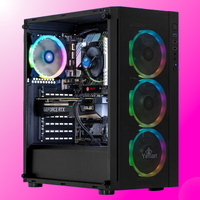Microsoft makes Recall an optional feature on Copilot+ PCs after it 'heard a clear signal' from the public
Better security has been added too but does that matter when you now have the option to ignore a feature nobody asked for?

It's only been a little over a month since Microsoft first announced a new feature for Copilot+ AI PCs, called Recall. The idea behind the AI tool was that it would make searching through your PC's use history easier but the public felt otherwise, pointing out that it had serious privacy and security concerns. Microsoft has updated the system to address some of these issues, adding the most important one of all—the option to disable it entirely.
The updates to Recall are covered in a Microsoft blog (via Ars Technica) and while the changes are only three in number, they're pretty significant ones. The first, and most important one of all, is that Recall is now completely optional.
During the first run of your new Copilot+ AI PC, during the Windows setup procedure, you'll be asked if you want Recall to be enabled. No prizes for guessing what most people will choose here.
Next, for added security, you'll need to use Windows Hello to enable Recall and also to view and search your timeline of PC activity recorded by Microsoft's AI feature. If you're unfamiliar with Windows Hello, it's a security function that uses a face-recognition camera, fingerprint scanner, or local PIN to access your PC or software.
Lastly, Microsoft is fully encrypting every snapshot of your PC that Recall takes, along with the search index database. These are all stored locally on your computer, rather than using a cloud service, but the main concern about Recall was that if anyone else logged into that same PC, the Recall data could potentially be accessed. With this update, snapshots will only be decrypted when unlocked via Windows Hello.
In the blog, Microsoft says that "even before making Recall available to customers, we have heard a clear signal that we can make it easier for people to choose to enable Recall on their Copilot+ PC and improve privacy and security safeguards."
To be frank, all of the updates should have been in place at the beginning. Microsoft said that Recall data was always encrypted but it wasn't specific to the snapshots and search index database, just that the entire disk would be using Bitlocker. Given that this encryption isn't 100% safe, the vast amount of personal information collected by Recall should have been additionally encrypted, or kept safe in some other way, right from the get-go.
The biggest gaming news, reviews and hardware deals
Keep up to date with the most important stories and the best deals, as picked by the PC Gamer team.
Given that the public perception of AI isn't exactly stellar at the moment, Microsoft should have foreseen the reaction to the announcement of Recall and gone overboard with the security measures. A little more work may have gone a great deal of good for the feature's reputation.
We'll see how well the updates are received when Recall is finally shipped to customers with Copilot+ AI PCs on June 18. However, the AI tool will only be on those computers, so if you're using Windows 11 on an x86 desktop PC or laptop, Recall won't be available and Microsoft hasn't said anything about bringing the feature across to other platforms so far.
Best gaming PC: The top pre-built machines.
Best gaming laptop: Great devices for mobile gaming.

Nick, gaming, and computers all first met in 1981, with the love affair starting on a Sinclair ZX81 in kit form and a book on ZX Basic. He ended up becoming a physics and IT teacher, but by the late 1990s decided it was time to cut his teeth writing for a long defunct UK tech site. He went on to do the same at Madonion, helping to write the help files for 3DMark and PCMark. After a short stint working at Beyond3D.com, Nick joined Futuremark (MadOnion rebranded) full-time, as editor-in-chief for its gaming and hardware section, YouGamers. After the site shutdown, he became an engineering and computing lecturer for many years, but missed the writing bug. Cue four years at TechSpot.com and over 100 long articles on anything and everything. He freely admits to being far too obsessed with GPUs and open world grindy RPGs, but who isn't these days?
Most Popular








